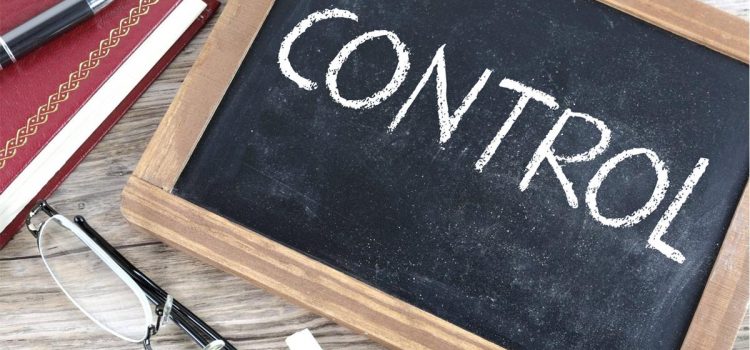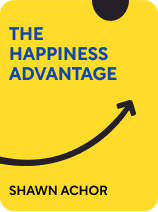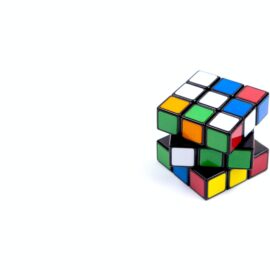

This article is an excerpt from the Shortform book guide to "The Happiness Advantage" by Shawn Achor. Shortform has the world's best summaries and analyses of books you should be reading.
Like this article? Sign up for a free trial here .
What’s the difference between an internal and external locus of control? Which is better?
Your thoughts shape your reality. For that reason, the amount of control you think you have matters more than the amount you actually have. The difference between an internal and external locus of control is the difference between someone who believes they are in control of their own life and someone who believes their life is controlled by external factors.
Keep reading to find out the difference between an internal and external locus of control.
Internal and External Locus of Control
There are incredible benefits of finding a way to rise above challenges by learning and growing from them. A good start is to know the difference between an internal and external locus of control.
In order to fall up, you have to feel that you have some control over your fate—but control can seem elusive when you’re stressed and overwhelmed.
Since your perception shapes your reality, the actual amount of control you have matters less than how much control you think you have. That doesn’t mean that you should falsely and foolishly claim control over things like the weather—rather, it has to do with how you interpret situations, similarly to the way your explanatory style determines how you make sense of challenges. There are two lenses through which you can interpret your control, an internal and an external locus of control:
- People who have an internal locus of control believe that they can have a direct impact on their futures. When these people face a challenge or setback, they reflect on how they could have performed better, and then they improve for future situations.
- People who have an external locus of control blame events and circumstances on external forces over which they have no control. This perspective leads to learned helplessness because if you don’t feel that you have any control, then it doesn’t matter what you do or don’t do—so, why bother? People with this view not only shirk the blame for failures, but they also deny credit for successes, which robs them of the feelings of confidence and commitment that come with achievement.
Here are the benefits of understanding the difference between an internal and external locus of control. Feeling a sense of control is one of the biggest factors in both happiness and success, and it contributes to:
- Increased motivation
- Higher levels of job satisfaction
- Lower stress levels
- Stronger relationships
- Effective communication and problem-solving skills
- Improved physical health
How to Regain Control
Instead of trying to win big right away, take an incremental approach to achieve steady, continuous improvement. By tackling small, manageable goals, you not only make incremental progress, but you also gain confidence, knowledge, and resources that help you continue your effort. For example, apply this to something as simple as a backlogged email inbox, which can cause consistent anxiety. Start by responding only to new emails. Then, address emails from the day before, and then the day before that. Limit the time you allot to this project each day—perhaps cap it at an hour—in order to break the large task into bite-sized chunks. This process helps to calm the emotional brain’s panic and instead tap into your problem-solving abilities.
The key is to start small. Follow these steps:
- Raise your self-awareness by acknowledging your emotions and articulating how you’re feeling, either by talking with someone or journaling. Research shows that the act of putting your feelings into words actually tames the power of negative emotions.
- Identify what you can control and what you can’t. Once you’ve verbalized what is causing you stress, make a list on a piece of paper or a spreadsheet of the aspects that you can affect and those that are beyond your control. Let go of your concerns about the things you can’t impact, and focus your energy on the areas you can control.
- Look at the list of things you can control, and create one small goal that you can accomplish right away. This small achievement won’t fix the whole problem, but it will give you a sense of accomplishment, control, and motivation to continue.
- Pick another small goal, and accomplish that. Repeat this process—progressively taking on larger tasks—until you’ve resolved the issue.
Exercise: Are You in Control?
Regain your sense of control over a daunting task or situation.
- Describe something that’s currently causing you to feel stressed or overwhelmed (such as a project at work or an issue among your family members).
- Explain why it makes you feel stressed.
- List two or three things about this situation over which you have control, and two or three that are beyond your control.
- Based on the things you can control, what is one goal you can accomplish today?

———End of Preview———
Like what you just read? Read the rest of the world's best book summary and analysis of Shawn Achor's "The Happiness Advantage" at Shortform .
Here's what you'll find in our full The Happiness Advantage summary :
- How happiness isn’t the result of success, it’s the cause of it
- The benefits of happiness—from increased creativity to improved health
- Strategies for adopting a positive mindset and raising your happiness baseline






